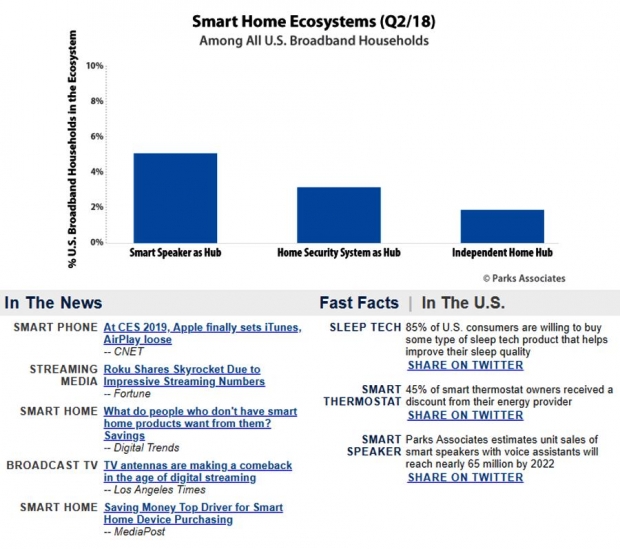
At the end of 2018, 24% of U.S. broadband households owned at least one of the 14 products that have thus far constituted the smart home market. This figure has grown from 9% at year-end 2014, according parksassociatesemail.com. These devices and their accompanying ecosystems require seamless interoperability to provide a robust user experience. A home is only as intelligent as its orchestrator - the home hub or centralized unit of control.
Voice interfaces, represented by smart speakers in particular, are ascending, aiming to be the dominant control method for smart home devices. As an interface, voice control alleviates the complexity in user controls borne of fragmentation. This is why tech giants such as Amazon, Google, and Apple are all vying to lock consumers into their smart home ecosystems with their respective voice assistant at its core.

Providing a natural and easy way to communicate commands and execute tasks has brought smart speakers to the forefront of smart home control. The speed in which voice interfaces have been adopted compared to legacy home control systems points to voice as the defacto method of smart home management.
For more information on this topic, see Parks Associates' 360 Deep Dive: Smart Home Ecosystems: Driving the Smart Home Forward. The study provides an overview of smart home ecosystems, including ecosystems in smart speakers, home security, home controls, and smart home devices.





